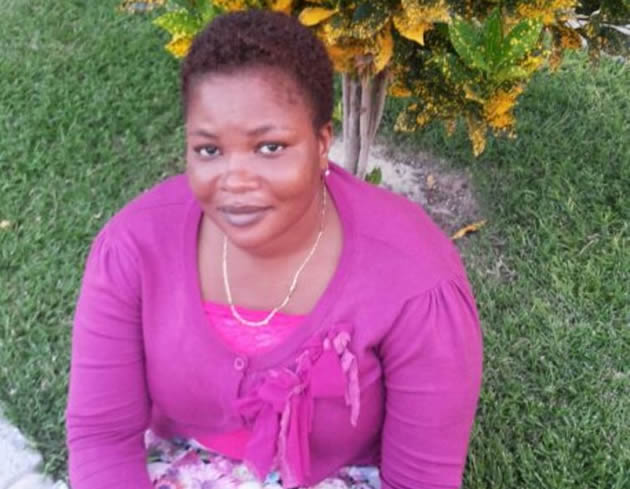Kufunda, remembering the wisdom of the elders
Sekai Nzenza On Wednesday
There was a time, during our growing up days in the village, when we thought those who did not go to school were uneducated. We pointed at them and said, “Havana kufunda”, meaning that they did not go to school. Over the years, I had not given much thought to this idea of knowledge or lack of it until my cousin Piri and I were driving to the village the other day.
Piri was telling me a story about an argument that happened at the flea market one time. I was half listening as usual because Piri is like a radio at times.
When she gets started, she does not stop talking. She got my attention when she raised her voice and said, “I do not want to waste time with uneducated people.” Handidi kupedzerwa nguva yangu nevanhu vasina kufunda.
When she said this, she raised her shoulders up high, chest out and spoke like she had several degrees up her belt.
I then asked her what an uneducated person looked like. Piri looked at me as if I was somehow mad to ask her such a question. “Sis, there are so many uneducated people around the villages, in Harare, overseas and everywhere. Education is not just book knowledge only,” she said, taking off her seat belt to grab another beer from the cooler box in the back seat.
Long before Independence, education was somehow linked to the ability to read and write. Back in the village, when Piri and I were growing up, there were no books. We learnt the skills of life from listening, observing, talking, singing dancing and even dreaming.
The only book we had was the Bible. My mother kept it wrapped in a plastic bag neatly placed in one of the clay pots. She never read it to us. It was not that she could not read. She did.
But, for whatever reason, Biblical knowledge was not part of our village upbringing. My mother carried the Bible on Sundays to the Anglican Church at St Columbus School and handed it over to the village evangelist who never had a Bible of his own.
At St Columbus Primary School our motto was: “Knowledge is Power.”
We recited it each morning at assembly as we walked barefoot in single file into the classrooms.
My father liked the motto so much that he used the red ink from the mubvamaropa tree to inscribe the words on the back of the goatskin mats we carried to school. We sat on the mats and chorused the motto out loud.
Every day at school we were taught that Western civilisation, English, Christianity, good manners, cleanliness, humility, respect and love were all part of knowledge.
Outside these values, there was no other knowledge and no other wisdom to strive for. Without it, we Africans would remain in darkness, forever ignorant and primitive. And we believed that to be true at the time. As for my grandmother, Mbuya VaMandirowesa, she never read a book. She never wrote anything. And yet, she could recite from memory whole praise poetry of the Eland, Elephant, Shumba, Buffalo and other totems when thanking someone. Like most old people around the village, she gave wisdom and knowledge through metaphors, proverbs, riddles, songs and stories.
Speaking to my grandfather and all the other elders, they often held a whole conversation in metaphors or madimikira and you would only understand a little of what they said.
Madimikira, was a way of speaking based in the past experiences and memories of the people. Such knowledge was passed on from generation to generation.
If any of my uncles kept on doing something bad, Mbuya had a certain way of looking at him and then say, “Iwe, rambakuudzwa akaonekwa nembonje pahuma”, meaning the person who refused to take advice or caution ended up with a big wound on his head one day.
There were many sayings with warnings like that.
At times the elders sat there by the big rondavel in the middle of the compound, their pot of beer in the middle, snuff passing hands, drinking, talking and laughing. We listened and learnt something about the meaning of life and hunhu, respect to others.
Mbuya VaMandirowesa did not pay any attention at all to what we were learning at school. In those days, Mbuya VaMandirowesa seemed to rule this village. She was a tall and formidable woman, always with a shaved head and brass ear rings. She often walked with hands clasped behind her back. Her face had a deep dark brown colour. Imposing and bare foot, she walked around the village compound, inspecting and examining everything with her sharp eagle eyes.
On each of her cheek bones were two small black tattoo lines, nyora, the traditional marks of beauty.
Her whole stomach was covered with these various patterns of beautiful nyora. The beauty and the knowledge of womanhood were buried in those tattoo patterns.
Down at the river Mbuya and all the village aunts, vanatete, instilled in us the knowledge of womanhood.
Many lessons that we carry today were learnt on those rocks, down by the river.
I recall quite vividly that we learnt about the use of oil, chinu chemafuta and the erotic meaning of the colourful full beads around the waistline. There was no book or pictures. But we saw all this, because those women with beautiful beads would always parade them around for all to see, admire and hope to wear them when the time arrived.
The “river school for girls” came to an end too soon for some of us who went to the Methodist boarding school.
From then on, our education was overtaken by the English civilised manners of the Methodist boarding mission. No more naked swimming or rolling in the river sand.
Piri stayed back here in the village. Today, she prides herself in knowing so much more than some of us who were educated or mis-educated by the good upright missionaries who could not bear to see beads around a woman’s waistline.
Before going to the mission clinic or to Harare Hospital, the village women were quick to remove the beads because the doctors and nurses cut the string off and put the beads away, possibly in the rubbish bin.
They said such primitive ornaments had no room in the civilised space of Western medicine. The wisdom must have disappeared along with each bead that fell off. Never to return.
Mbuya VaMandirowesa’s grave sits on top of the granite rock overlooking the ghost village compound.
Her spirit broods over the valley, her eagle eyes cast in stone questioning us.
Every time I see that grave, I think she is probably speaking harshly to us all now saying, kufunda, what is kufunda if you do not know who you are, where you have been and where are you going.
Before we got to the village, Piri reached out to get another beer and I noticed the beads around the waist. “You still wear the beads?” I asked, as if I was noticing them for the first time. Piri looked at me and said, “Ndiko kusafunda kwacho ikoko. Kurasa tsika nechingezi,” She meant that I was displaying a lack of knowledge, kusafunda.
Not only that, I had lost what is of value because I had too much of Western ideas of knowledge. Then she went on to lecture to me, saying that there was nothing wrong in her wearing Shona traditional beads, mukanda wake.
If she had money, she would buy gold or silver rings and necklaces to compliment her traditional village beads.
“Sis, going to school, speaking good English and having degrees does not mean you are educated, unless you can balance your Western knowledge with hunhu or respect, you are not educated. Hauna kufunda, ” Piri said, pulling her jean skirt up and covering her beads.
Dr Sekai Nzenza is a writer and cultural critic. She holds a PhD in International Relations and is a consultant and director of The Simukai Development Project.










Comments